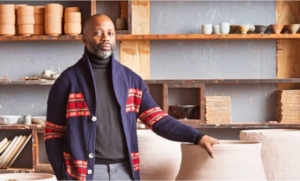For our second challenge of the 2021-2022 program year, we were honored to partner with Marygrove Conservancy, a nonprofit organization with a mission to preserve the legacy of Marygrove College through equitable stewardship of a campus that exemplifies excellence in education, serving Northwest Detroit and the city overall. Eight teams of Fellows collaborated with the Marygrove team – led by COO Racheal Allen and Program Manager Turkessa Baldridge – along with community stakeholders over seven-weeks. Learn more from the perspective of each team!
The Marygrove Conservancy is an invaluable community asset in the Live6 area. The breathtaking campus is complemented with many community services from youth development programs to business consultations. In expanding upon this foundation, the Marygrove leadership tasked our group with facilitating a more robust Closed Loop Economy (CLE) within their campus. A CLE is defined as an economic model in which no waste is generated and all parties involved share, trade, and grow alongside one another (reference needed?). This concept is important for Marygrove and the Live6 community because it will limit overhead for small and established businesses alike by cultivating a fertile ground in which there is consistent access to resources and patrons. With this concept in mind, we reflected on our “How might we” question: “How might we generate economic opportunities for community-based businesses with our intentional redirection of purchasing and procurement opportunities?” While this certainly is no small task, our group was excited to get to work and provide the best deliverables we could. These deliverables include a rubric to determine if a business is a good fit for the CLE and suggestions for a business & community outreach plan.
As we set off on the first step of the design thinking process, our interviews provided us with a plethora of information. We spoke to a variety of stakeholders, from Marygrove partner businesses to Marygrove Conservancy COO Racheal Allen and CEO Tom Lewand. During these discussions, our top insight was that the Closed Loop Economy is designed to keep money within the Marygrove and Live6 community and create a self-sustaining ecosystem. Rachel Allen, the COO, described this process with a metaphor on the creation of applesauce. Rachel said, “We want Marygrove to be the thing that helps make the thing. If it were like making applesauce, the small businesses would produce the apples, we would help them turn it into applesauce, sell it to our students, and as a result, jobs are created.” This concept was eye-opening for us and was instrumental in how we framed and executed our deliverables.

We then created a three-pronged rubric using google sheets. The first page is a Needs Assessment Form for detailing a specific need of Marygrove, such as landscaping, janitorial, or other. The second sheet is a comprehensive Directory of Businesses in the area. The final sheet is the Rubric in which Marygrove would input a specific business from the directory based on their needs. For our second deliverable, we provided suggestions for a community and business outreach plan. These suggestions included hiring community liaisons, hosting events, developing a stock email/script for business outreach, and providing a “how-to license your business workshop”. We then tested our prototypes with the other Challenge Detroit Fellows and our Project Stakeholders.
Through testing with other Challenge Detroit Fellows, we gained some valuable feedback. We heard that we should add specific drop-down answers for each criterion to minimize open-ended answers and to create a rubric key to color-coordinate possible selections and visualize whether a business would help promote the Closed Loop Economy. By making these corrections and expanding our suggestions around community outreach and business outreach, we created our fully-formed deliverables. By creating a process for Marygrove Conservancy to assess their own needs, identify local businesses, and evaluate potential vendors, our team strove to improve the Closed Loop Economy.
***

